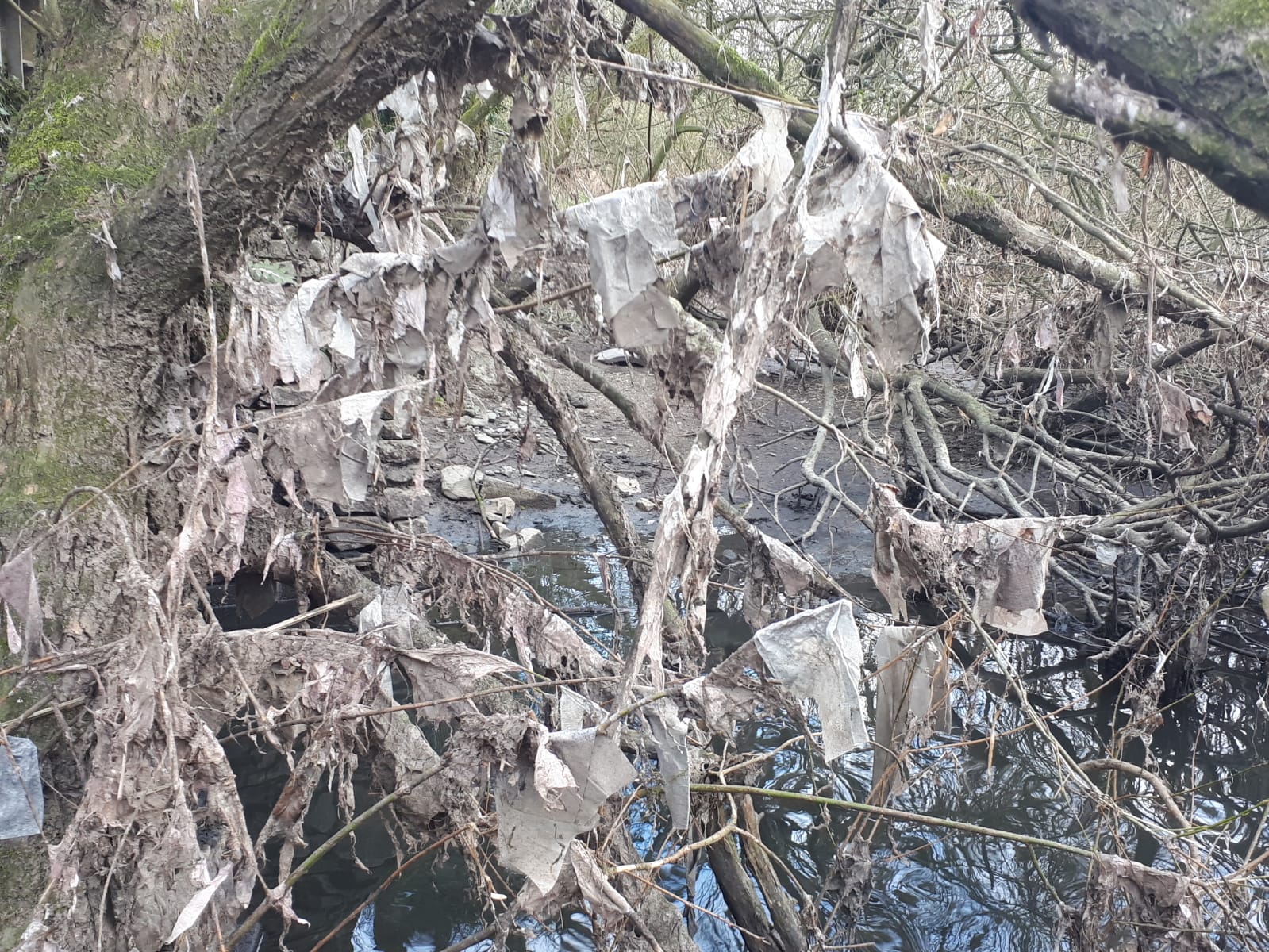Wildfish highlight failings in report on agency’s lack of response and monitoring of sewage discharges

Riverside vegetation below a sewage outfall.
In a “devastating” programme to be broadcast by BBC Panorama today, December 4, 2023, accusations are levelled at the Environment Agency (EA) in relation to its handling of reported pollution events, and their monitoring of water companies’ sewage treatment works, as an investigation by the BBC Panorama team turns the spotlight on water pollution scandals.
The programme focuses on a number of incidents including a huge fish kill on Cunsey Beck, Cumbria, in June 2022. The programme highlights huge failings in Agency investigations into whether sewage discharges, from a United Utilities’ treatment works, were the cause of the pollution.
Guy Linley-Adams, solicitor for WildFish and contributor to the programme, said: “The BBC Panorama investigation raises serious questions not only in relation to the specific incident near Windermere but also generally as to the Environment Agency’s ability – and indeed its willingness – properly to police the privatised water companies, in relation to the treatment of sewage, sewage they are paid to treat by bill-paying customers”.
Failure to police
On top of the failure to police sewage treatment works and control the use and abuse of storm overflows by water companies, the Agency’s woeful response to reports it receives of pollution incidents has also been exposed by the BBC programme – attending only six out of 931 reported water company incidents over three years in the north-west.
Guy Linley-Adams added: “If the Environment Agency can only turn up to 6 out of 931 reported water company pollution incidents, it doesn’t take a genius to spot that polluting water companies will be getting away with it. If the Agency is not there to gather evidence, what chance is there or any meaningful enforcement action? It is a complete mystery to me how staff at the Environment Agency can be happy with this state of affairs”.
Wildfish has been campaigning hard in recent years to seek a return to the proactive, robust, and independent regulator of the time of the previous National Rivers Authority to control pollution of English rivers, lakes and coastal waters today.
Failings
In 2021, WildFish published a detailed report into the failings at the Agency, which concluded that:
• in the 25 years since the Agency was established it has had ample time to use its statutory powers to protect and enhance the freshwater environment, as per its statutory purpose given to it in 1995;
• however, progress in improving the overall quality and ecological status of the freshwater environment in England has stalled;
• despite a legal requirement on the Agency, that it establishes and maintains monitoring programmes to give a coherent and comprehensive overview of water status across England, the monitoring efforts being made by the Agency are inadequate and getting worse;
• the introduction of operator self-monitoring (OSM) in 2009, whereby polluters monitor their own discharges and report themselves if they breach permits, has dramatically reduced the deterrent to would-be polluters and has opened the door to cheating, such as that undertaken by Southern Water over many years;
• the rate of inspection carried out by Agency staff at regulated sites that have the potential to cause pollution has reached an extremely low level;
• the Agency’s enforcement and prosecution record showed that the number of prosecutions conducted by the Agency has dwindled dramatically over time with the rate of decline increasing rapidly since 2012/2013.
Nick Measham, CEO of WildFish said: “As the BBC Panorama programme shows, the Agency remains a pale shadow of the National Rivers Authority that it replaced in 1995. As it stands, it is unlikely that anything more than the further managed decline in the quality of the freshwater environment can be achieved in future years with the Agency as it is. Politicians, of whichever party, need to get a grip on this urgently”.
Water companies and the sewage law
A judicial review challenge case brought by WildFish earlier this year (2023) has clarified a 1994 law on sewage treatment (the Urban Waste Water Treatment Regulations 1994) which restricts the circumstances in which untreated sewage can be released into rivers via storm overflows.
That 1994 law requires water companies to use best techniques, not involving excessive cost, to prevent untreated sewage being released, unless there is exceptional weather. Exceptional weather does not include normal or usual rainfall. It certainly does not include dry weather conditions, although we have seen many water company sewage pipes discharging untreated sewage into rivers in dry conditions over recent years. The case confirmed that sewage treatment infrastructure needed to comply with the 1994 law must be funded by the water companies and not by customers through their water bills.
Following up on that case, WildFish has recently sent formal legal letters to the Environment Agency and OFWAT setting down exactly what the law requires them to do to end unlawful sewage discharges, warning both that if they do not take urgent steps both to comply with the law themselves, as well as to enforce the law against water companies, a further legal challenge will likely follow from WildFish.
Formal complaint
In parallel to the judicial review challenge, in 2022, WildFish made a formal complaint to the Office for Environmental Protection about the failure of OFWAT to ensure water companies invested over years to ensure sufficient capacity to treat normal flows of sewage at their sewage treatment works. This led to the OEP’s announcement of its first-ever investigation into the regulation of combined sewer overflows.
As part of that investigation, the OEP has already identified possible failures to comply with environmental law by DEFRA, the Environment Agency and OFWAT, stating that “we believe that there may have been failures to comply with environmental law by all three of the public authorities”.



